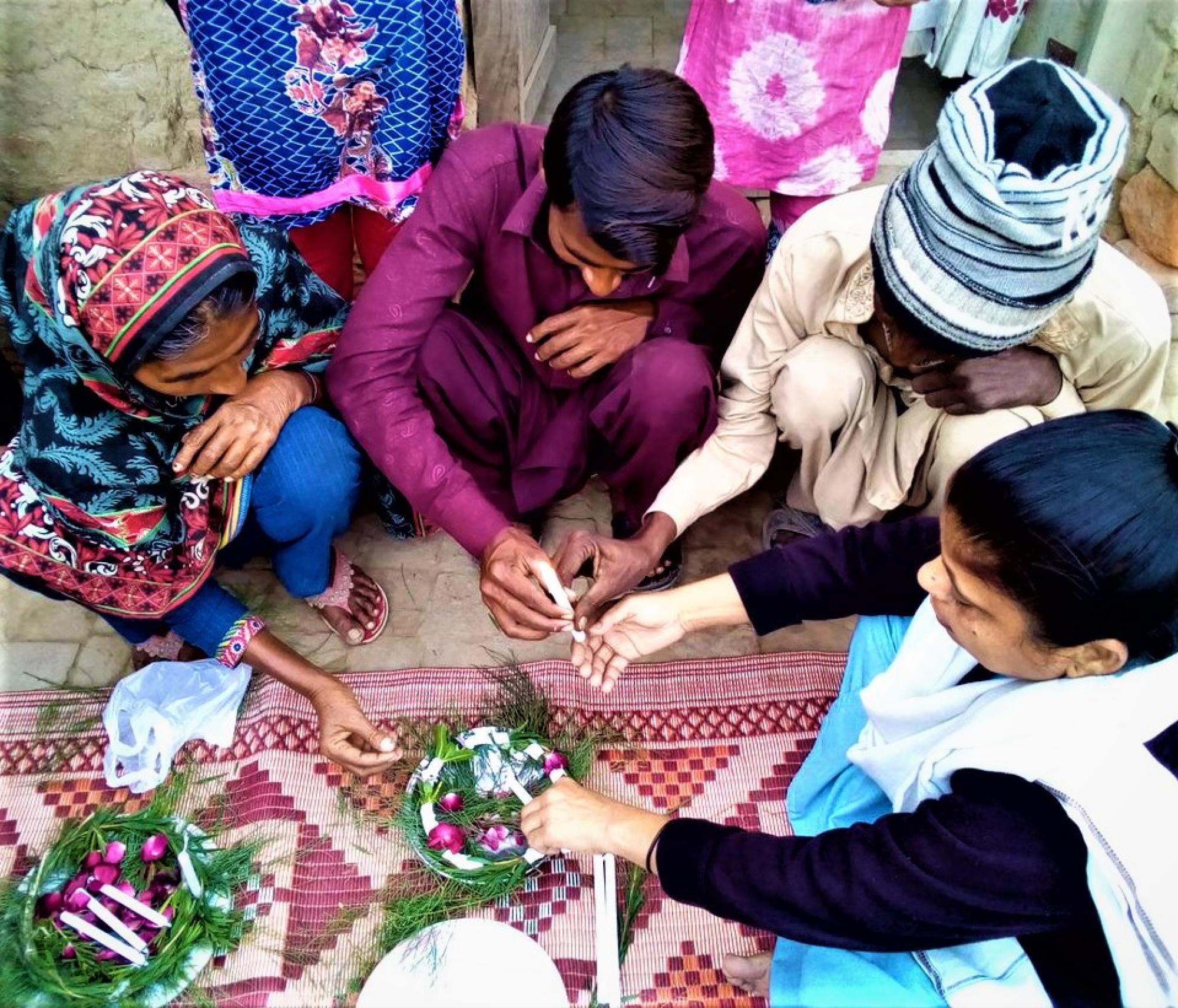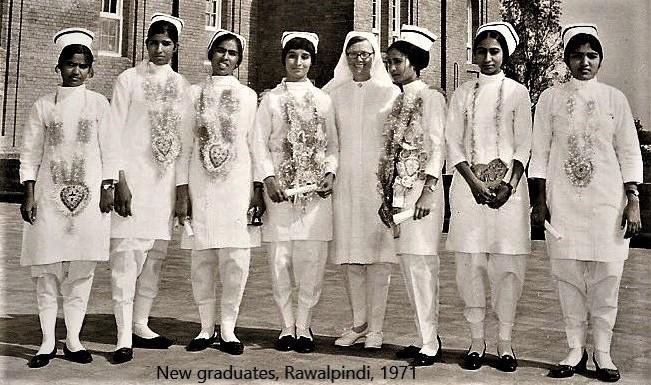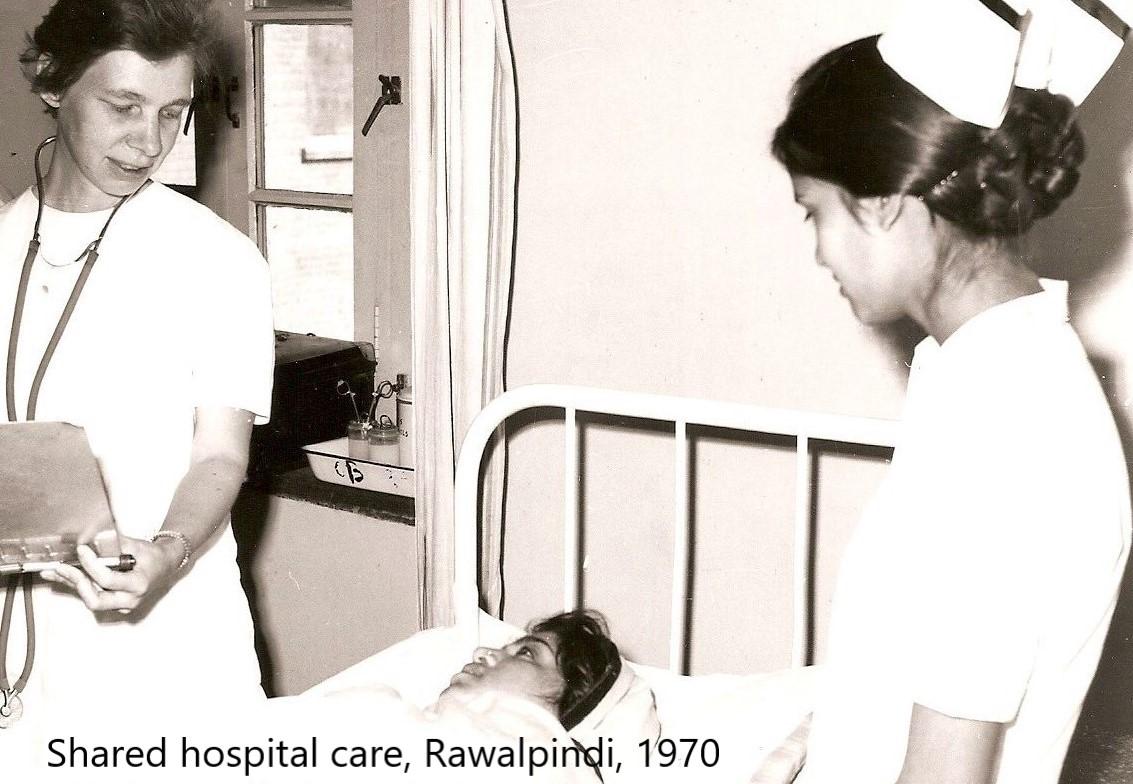Pakistan
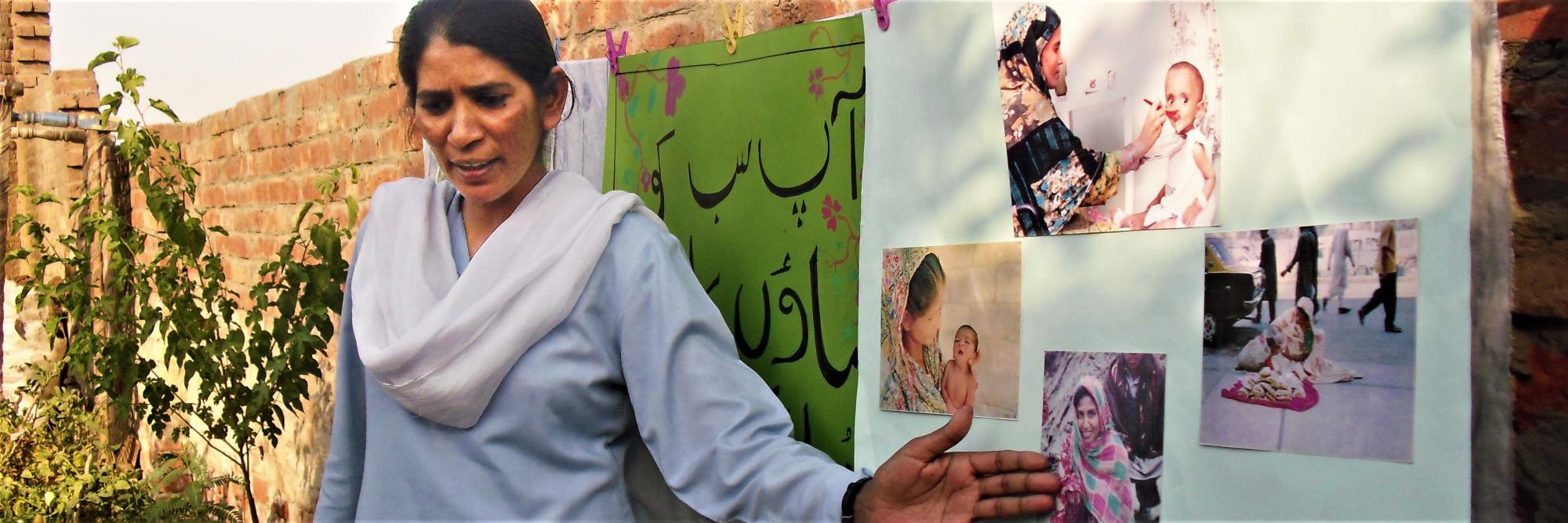
Our history in Pakistan
The story of the Medical Mission Sisters begins in Rawalpindi - then India, now Pakistan - in the 1920s. Scottish pioneer, Dr Agnes McLaren, raised funds though the Medical Mission Committee in London for St Catherine's Hospital in Rawalpindi to open its doors in 1909. She had supported the medical studies of a young Austrian, Anna Dengel. On 10th November 1920, Anna arrived as a lay missionary to practise medicine at the hospital, working single-handed for many years. She was so loving and kind that even the young girls of Rawalpindi knew her well as ‘Sister Ann’ - long before she became a religious sister. She took care of the patients and made home visits to to mothers and children, all of which shaped her call to become a religious sister.
In 1924, Anna had a vision that a group of women health professionals, who dedicated their lives to God, could make a difference in helping women to access the healthcare they deserved. The Society of Catholic Medical Mission Sisters was established in Washington DC on 30th September 1925. Its Sisters shared the faith and owned everything in common.
In 1927, MMS' first Holy Family Hospital took shape on Murree Road, Rawalpindi, in a building which still stands today and now serves as St Mary’s School. The sisters were kept very busy with inpatient and outpatient clinics and making visits to villages and they were soon welcoming local girls for training as student nurses. Fundraising for mission development, especially in the USA, began out of necessity as services began to expand due to local needs.
Setting up local training schools
By 1930, whilst the the hospital flourished, the training school was reorganised to ensure higher standards of education. Eight years of education was made a requirement for admission and the school was recognised by the Punjab Council. In 1933, the first group of Indian sisters from other congregations also enrolled for nurse training, quickly joined by others, mainly from Bengal or Patna one year later. It was a red letter day when the first Indian sisters graduated as nurses and one Medical Mission Sister passed her exams in midwifery.
By 1939, there were thirteen Medical Mission Sisters, including Sister Doctors, who arrived from USA and Europe to work in and oversee the various departments of Holy Family Hospital Rawalpindi. In 1940, a second group of five young women from Malabar, South India, were admitted for nursing training.
Our story after partition in 1947
Then the 14th August 1947 marked the end of British rule in India. The nation divided into two and Pakistan was created. The effect of the partition was that refugees flooded into the city of Rawalpindi. Two refugee camps were set up just across the road from the hospital and infectious diseases, such as cholera, typhoid and tuberculosis, and malnutrition took hundreds of lives daily. Two or three sisters tended to the sick and the dying. Fewer Muslim girls came forward for training despite the new government pledging educational opportunities for women.
In 1948, the MMS Holy Family Hospital in Karachi was founded at a time when healthcare facilities were scarce in Pakistan. MMS served in this newer 225-bed establishment from 1967 to 2009.
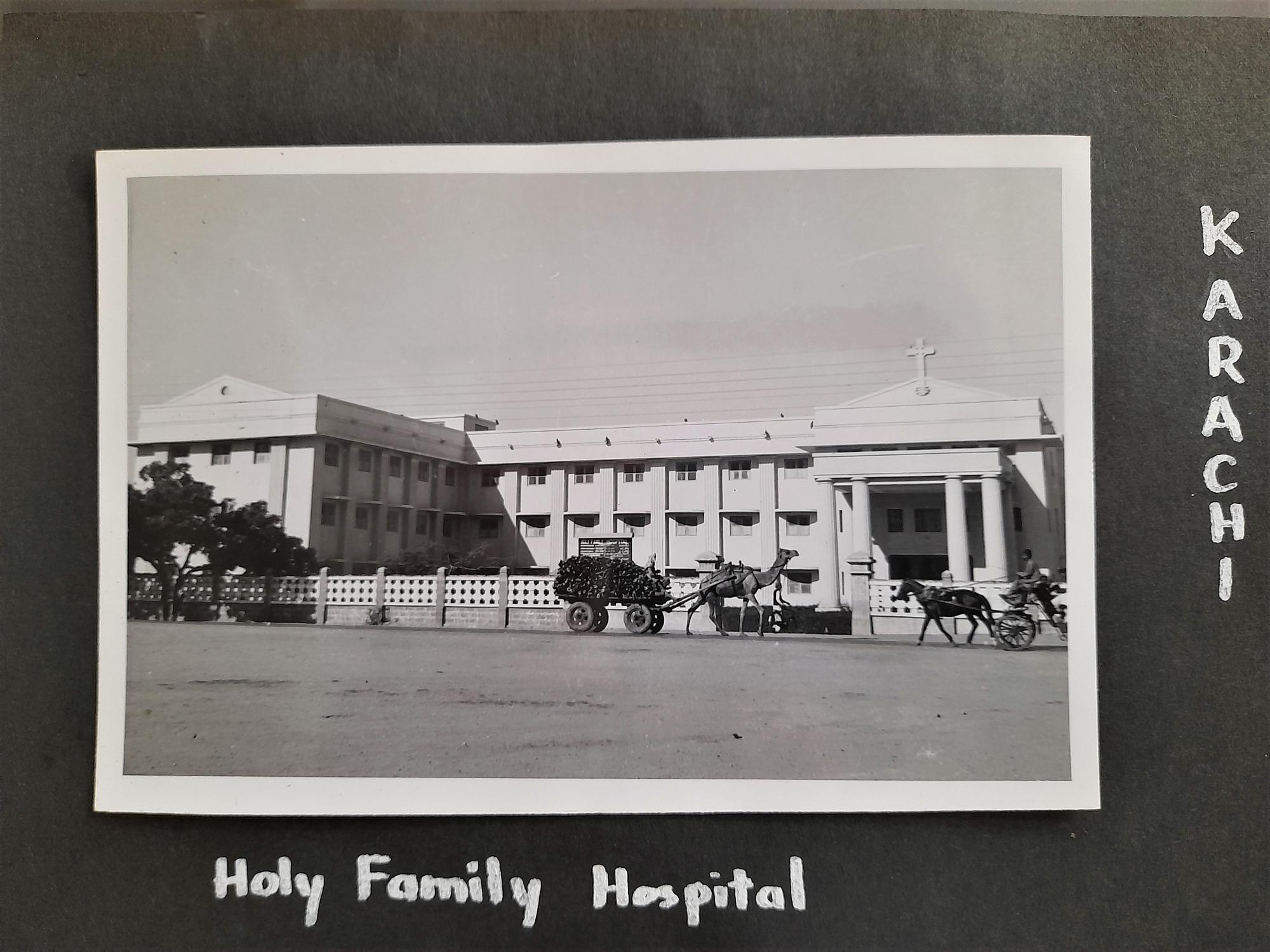
Holy Family Hospital Rawalpindi: yesterday and today
The official blessing of the new Holy Family Hospital Rawalpindi took place on 25th March 1950 in the presence of four bishops and more than 400 guests from India and Pakistan - after Pakistan's army had helped to transfer the patients and equipment to the new site. The nursing programme attracted an increasing number of candidates from both Muslim and Christian communities with Medical Mission Sister Dolores Paulus appointed as the first director of the Nursing Council of Pakistan. Sister Philomena Faria from Karachi joined us as the first Pakistani Medical Mission Sister in 1966.
Today, in 2021, Holy Family Hospital Rawalpindi is administered by the Government of Pakistan as a 1,000-bed hospital. It trains both doctors and nurses. More than 100 students are enrolled at the Holy Family Hospital School of Nursing. The students spend three years in basic nursing and a fourth year in midwifery training. At present, lay people are administering both Holy Family Hospitals, Rawalpindi and Karachi, in Pakistan.
We, as MMS in Pakistan, feel immense pride that thousands of people continue to benefit from quality healthcare services that our founder pioneered.
Focus of our mission in Pakistan
Developing and adapting our original healing presence to meet the needs of our time
Serving at the heart of the most marginalised communities
Responding to emergencies, including climate change
Developing and adapting our original healing presence to meet the needs of our time
Our healing presence has developed in Pakistan over the years in response to the needs of the people and signs of the time. In 1991, we acknowledged mission asks us: “To care for the Earth and tend to the wounds of its people with compassion”; and "To seek to bring about wholeness in which persons and the whole of creation attain the fullness of life desired by God.”
We realise that we have to go to the people, rather than people come to us, and have begun this approach through home visiting, visits to parish schools and arranging preventative community healthcare programmes. In short, we invite people to join us at the table of creation.
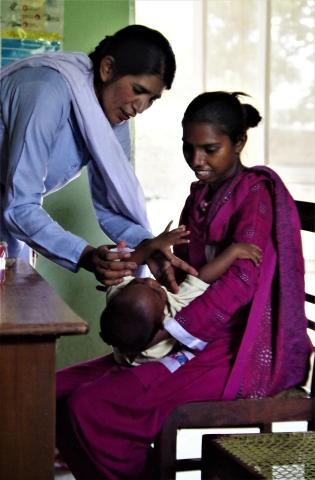
Accompanying marginalised brick kiln families
In particular, we are accompanying and close to families who work in the brick kilns in Pakistan, some of whom are Christian, and many of whom are are related to each other. The parents and children become part of a labour force which is a form of modern day slavery. The children work from the early morning making the bricks, food is scarce among families and the majority only eat one or two meals a day.
We, as a team of four MMS, one lay midwife and a driver visit the area regularly. Children, ranging from 5-12 years, become involved in our informal education programmes through engagement of two of the Sisters. A lay midwife and two other Medical Mission Sisters are involved with health education and home visiting.
At the beginning of every month, we take the weight, height and arm circumference of each child and record it. Over six months, we evaluate the results. We also distribute a nourishing food supply, including milk, lentils, oil and one packet of beans twice a month to the children and record this. We also teach those children, who are from Christian families, basic catechism and conduct prayer services in different Christian households in turn. They are always happy to see us.
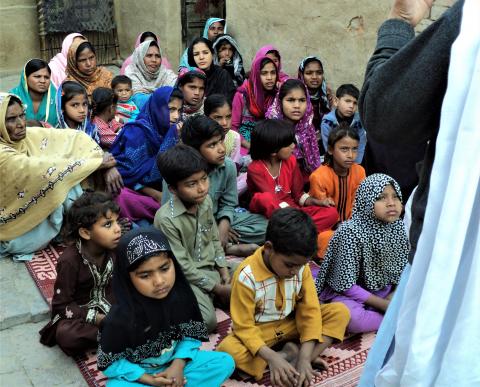
Reflecting on what we do
Journeying with marginalised in Pakistan continues to be a blessing for us as Medical Mission Sisters. We are simply mediators, but it is God who is providing us with physical and spiritual food. The communities with whom we work are great teachers for us in so many ways. When we visit them, they provide a venue for us to practise and learn inter-faith dialogue between Muslims and Christians. In this service, so many generous givers are involved directly and indirectly. Above all, we are very grateful to our donors for supporting us financially.
